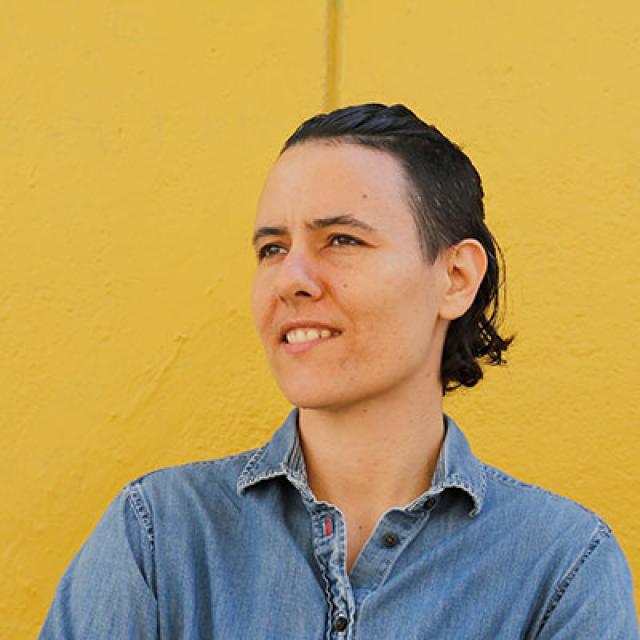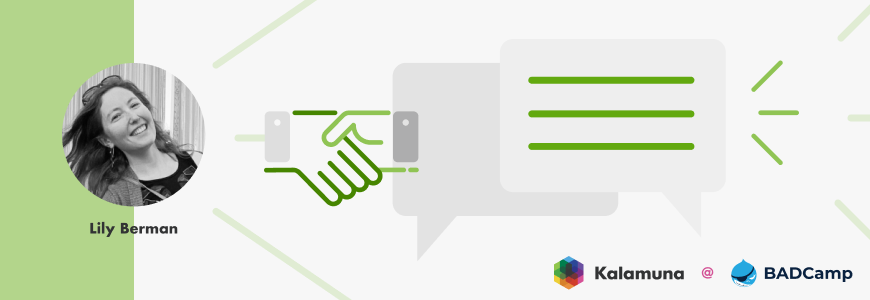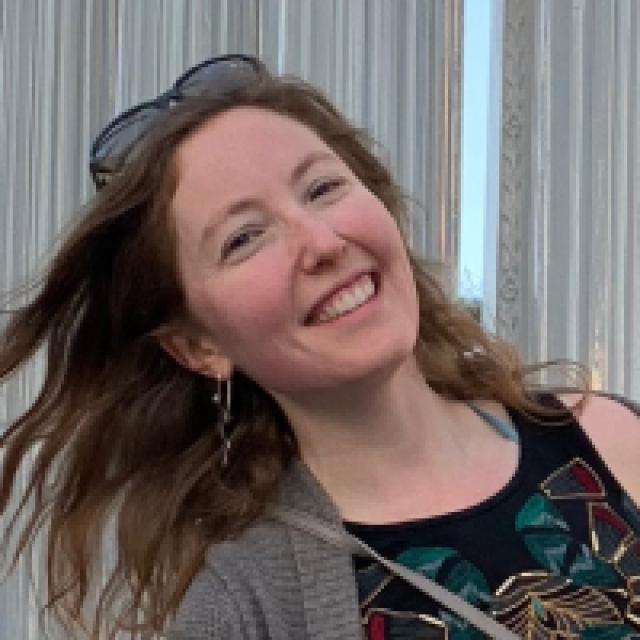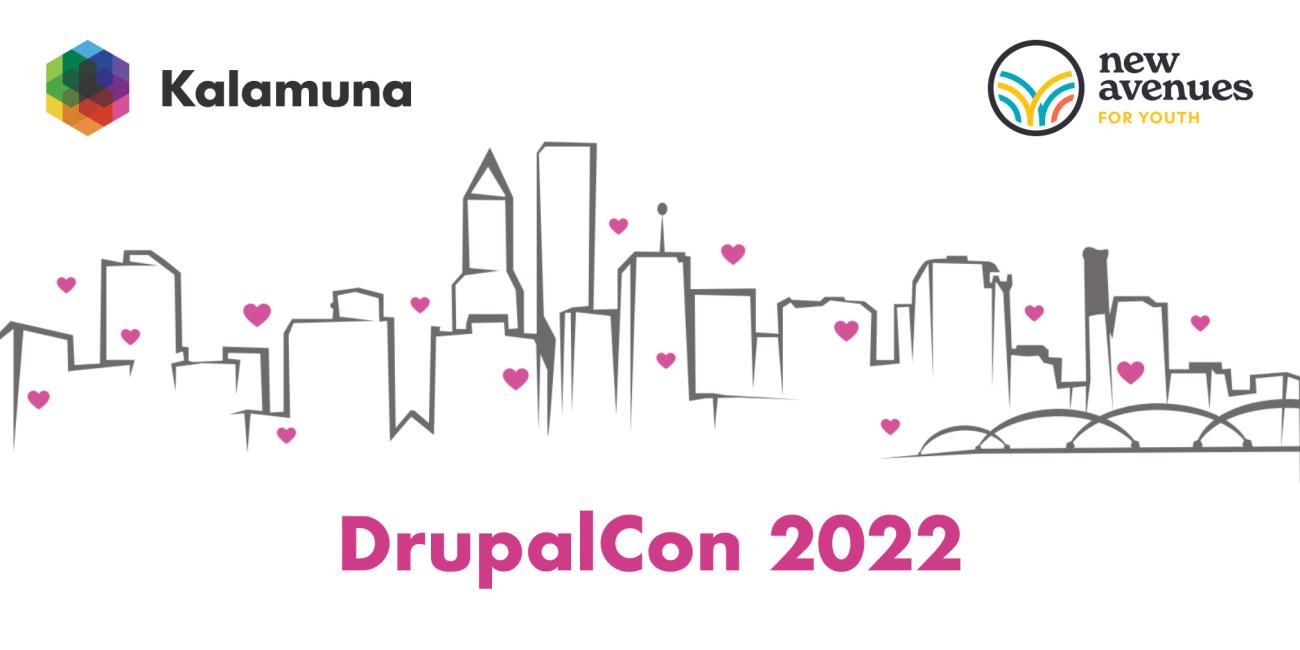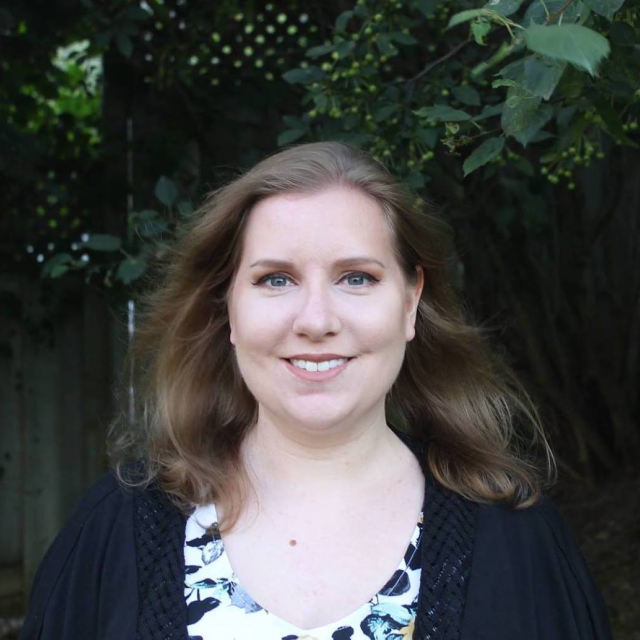“I open letters from prisoners:” An interview with support manager Alice Freda
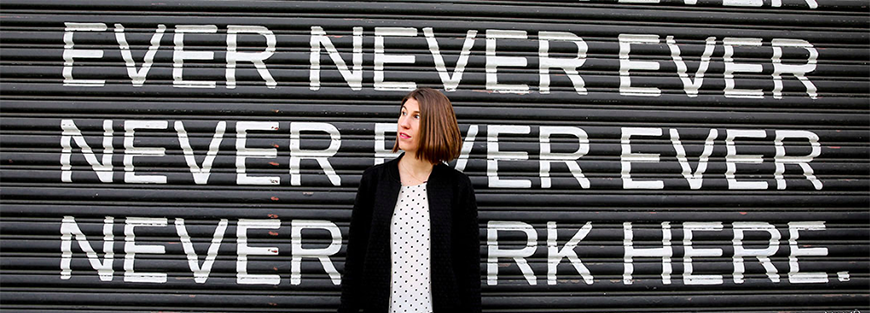
Share
It’s been about five years since Kalamuna opened its doors—long enough for us to have grown so much that we’re now rethinking who we are, what we do, who we do it for, and why. In group conversations about these topics, it came out that several of us volunteer outside Kalamuna, and we thought interviewing members about this work would illuminate how our individual values might contribute to a larger, collective point-of-view. If you're interested in working with us in any way, I hope this interview with Alice Freda, our support manager (and volunteer for an inspirational nonprofit) will help you get to know us.
What do you do at Kalamuna and what got you interested in the company?
I'm the Support Manager at Kalamuna, which means I help clients with their existing websites. I got interested in the company because I had many years experience in web support and liked that Kalamuna has its own support department. I also appreciated that we’re selective about the clients we work with. We prefer to work with organizations that are promoting positive change in some way, resulting in some really great clients.
With what organization do you volunteer?
Prisoners Literature Project, in Berkeley. Also known as “PLP.”
How did you get involved with the Prisoners Literature Project?
When I was a teenager I used to walk around on Haight Street and always stopped into the anarchist bookstore there (Bound Together Anarchist Collective). They have a great collection of used books. At some point they were selling t-shirts for the Prisoners Literature Project and I bought one. I love to read and the idea of sending free books to people who need them really resonated with me. I always wanted to get involved in some way but the timing wasn’t right and I moved away from the Bay Area for about a decade. My dad actually went to prison during that time and I learned a little more about sending books and letters to people inside and how impactful it can be. When I moved to Berkeley I looked them up and it turns out they make volunteering really accessible. I try to go on Wednesday evenings.
I can see how having a personal relationship with someone in prison—someone you were communicating with, your dad—would get you thinking about how having access to books affected his life there. Did he ever say anything about his reading? What he enjoyed about it or how it helped him?
Just that the options in the prison libraries were usually really limited and not very intellectually stimulating. There obviously isn’t a lot to do in prison, and reading provides an escape as well as a way to better yourself.
What is your volunteer work like at the Prisoner’s Literature Project? What do you do there and how does that fit within what the org does as a whole?
I open letters from prisoners and try to find books that match their requests as best I can while working within the individual prison restrictions for what types of books they are allowed to receive as well as the limitations of the books available in PLP’s donated library. I also respond to their letters with a short note about the books I chose and why, with a few words of encouragement if possible. Then everything gets packed up and labelled so the packages are ready to ship right away. Part of the reason I enjoy volunteering with them so much is the work volunteers do is directly related to the mission of getting books to prisoners. It’s very efficient and also very easy to see how what you’re doing is having an impact on people. So many prisoners write about how grateful they are for the books we send and they say the books get passed around to many people.
I’ve heard the argument that charities and nonprofits are doing work that the government should be administering. Do you agree, disagree, or have other thoughts?
I do think a lot of charities and nonprofits pick up the slack for services not provided by the government. Maybe we wouldn’t have to pay taxes if everyone donated to organizations they cared about. I guess right now donating monetarily is a way to choose where a certain percentage of your tax dollars go, if you’re able to write donations off.
The government could be seen as playing a role in creating the problem this charity is trying to help by locking so many people up in places where they have very limited (or no) access to books. I think if our society acknowledged that we have an interest in reducing recidivism or allowing prisoners to rehabilitate themselves while they’re locked up, prison libraries would be better funded.
Is there a relationship between your volunteer work and your work with Kalamuna?
I think so. I help support a lot of websites for organizations that are doing really good work so the concept of giving back is never too far from my mind. Volunteering also means I’ve become more familiar with how non-profits work and keeps me in touch with some of their unique needs, like how to make the most out of a limited budget or how and why they’re using their website.
Thanks, Alice.
I’ve found that many of our members have sought to work with us in part because they feel a personal connection to our clients’ missions, which include championing the environment, public education, and other causes for the collective good. And as the person who leads our brand concept and message, it’s exciting to understand, through focused interviews, how that message continues to attract a diverse and talented staff. I’m looking forward to upcoming interviews like this one, where I’ll get to learn about and share what motivates our members to do the work they do for and outside of Kalamuna.

